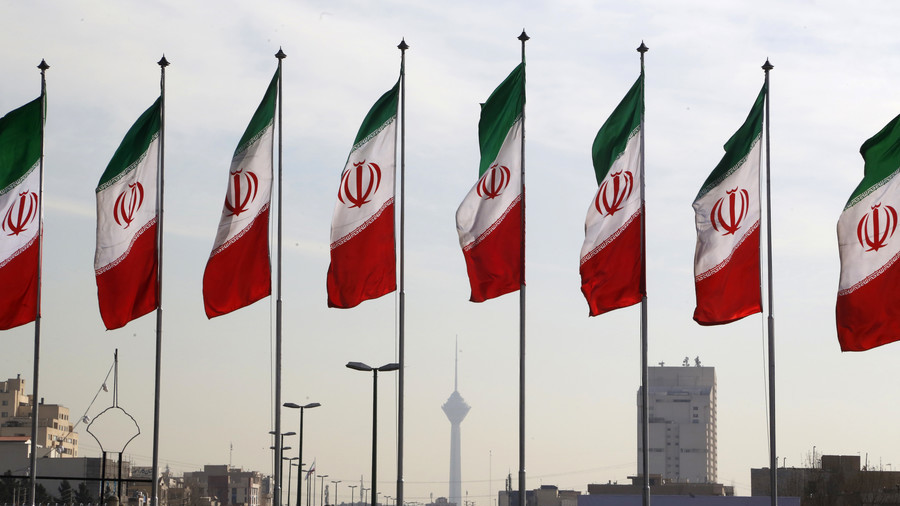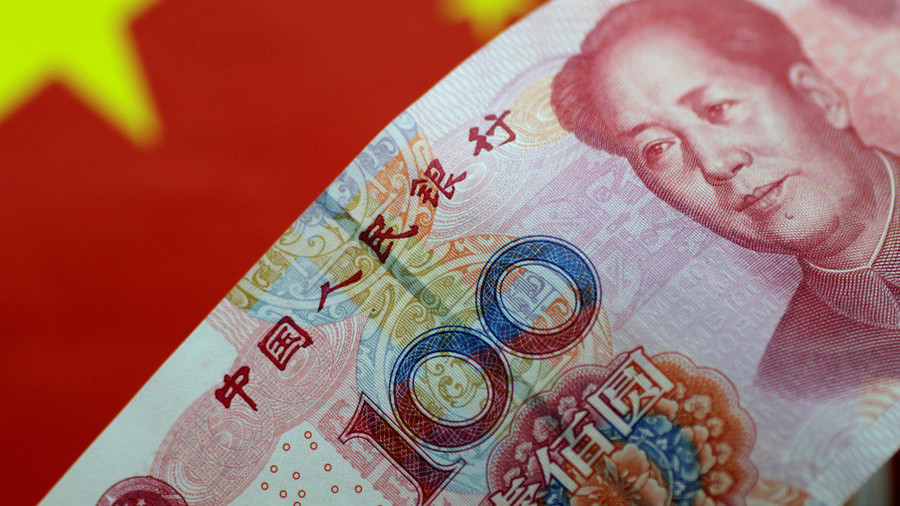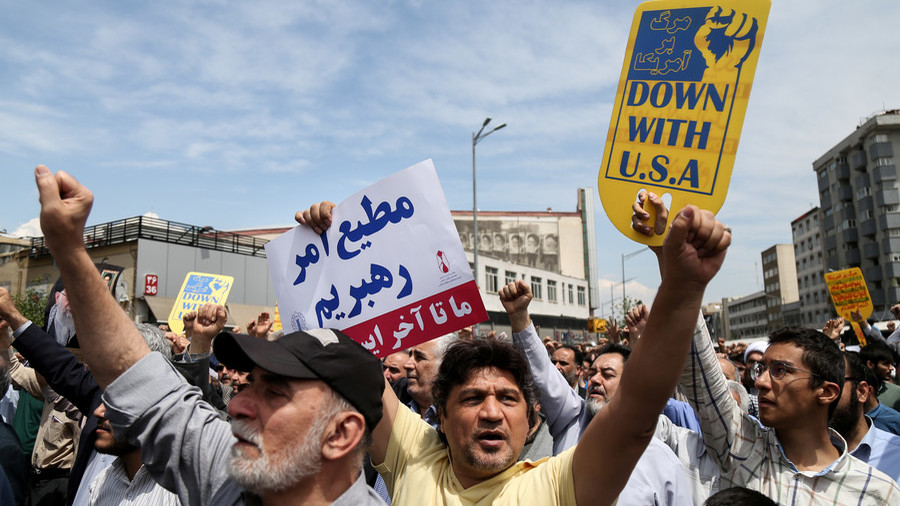Trump
says anyone trading with Iran will not trade with US as sanctions
come into force

US President Donald Trump has warned that any country trading with Iran will “not be doing business with the United States.” The threat comes as sanctions against the country came into effect at midnight.


RT,
7
August, 2018
US President Donald Trump has warned that any country trading with Iran will “not be doing business with the United States.” The threat comes as sanctions against the country came into effect at midnight.
The
announcement came via the president’s usual medium of
communication, Twitter, where Trump announced that the sanctions
taking hold were “the most biting ever imposed.”
Trump
also promised that Washington will “ratchet up” the economic
pressure on the Islamic Republic in November, and said that other
nations found to be trading with Iran would not find a trading
partner in the United States.
“I
am asking for WORLD PEACE, nothing less!,” US president concluded.
The Iran sanctions have officially been cast. These are the most biting sanctions ever imposed, and in November they ratchet up to yet another level. Anyone doing business with Iran will NOT be doing business with the United States. I am asking for WORLD PEACE, nothing less!
The Iran sanctions have
officially been cast. These are the most biting sanctions ever
imposed, and in November they ratchet up to yet another level. Anyone
doing business with Iran will NOT be doing business with the United
States. I am asking for WORLD PEACE, nothing less!
Tuesday’s
sanctions will see Iran prevented from using US currency as well as
being barred from trading in cars and metals and minerals that
include gold, steel, coal and aluminium, affecting Iran’s ability
to buy US and European aircraft.
In
November, Trump is expected to ratchet up the pressure on Iran by
blocking Iranian oil exports, potentially halting some 2 million
barrels a day, or 50 percent of Iran’s output, according to the
BBC.
Allies
China and Russia may intervene to help keep its industry afloat.
The
International Monetary Fund said in March that Iran's net official
reserves could decline this year to $97.8bn, which would finance
about 13 months of imports. And analysts at BMI Research say Iran's
economy could contract by 4.3 percent in 2019.
The
re-imposed sanctions came into effect overnight, and follow
Washington’s withdrawal from the Joint Comprehensive Plan of
Action, colloquially known as the Iran nuclear deal.
Negotiated
by Trump’s predecessor Barack Obama in 2015 and backed by the
European Union, Russia, and China, the Iran deal sought to lift
economic sanctions imposed on Tehran as part of an agreement to curb
the nation's nuclear program.
Trump
has previously blasted the accord as skewed in favor of Iran and has
labelled the deal as “one of the worst I’ve ever seen.”
His
position is a odds with the one held by the EU, who have stood by the
deal saying that they would protect firms doing "legitimate
business" in the face of US sanctions.
Trump’s
latest remarks are likely to further escalate tensions with the bloc,
which had seen the easing of sanctions as a way to keep Iran within
the diplomatic fold.
Prior
to the renewed sanctions taking effect, European Union Foreign Policy
Chief Federica Mogherini said the EU is encouraging investors to
maintain business ties with Iran to preserve the nuclear deal,
despite the US withdrawal.
“We
are doing our best to keep Iran in the deal, to keep Iran benefiting
from the economic benefits that the agreement brings to the people of
Iran, because we believe that this is (in) the security interests not
only of our region but also of the world. If there is one piece of
international agreements on nuclear non-proliferation that is
delivering, it has to be maintained,” she said on Monday.


European
companies doing business with Iran could soon find themselves between
a rock and a hard place. Should they comply with US sanctions and
abandon Tehran, they may in turn face sanctions in their home EU.
If
European companies cave in to US President Donald Trump's threat of
secondary sanctions and stop doing business in Iran, they will be
punished by the EU itself, says the aide to Federica Mogherini, the
bloc's foreign policy chief.
“If
EU companies abide by US secondary sanctions they will, in turn, be
sanctioned by the EU,” Nathalie Tocci told BBC Radio 4 in an
interview on Monday night, as reported by NBC.
According
to Tocci, the move would show Iranians that the Europeans are serious
about keeping the 2015 nuclear deal intact despite Washington's
efforts to tear it down. Earlier, the EU enacted the Blocking statute
to forbid its companies from complying with the US sanctions, which
came back into force on Monday as part of Washington's push to bend
Tehran to comply with its multiple demands.
Since
Trump pulled the US out of the 2015 JCPOA agreement, which envisioned
the lifting of economic sanctions on Iran in exchange for it winding
down its nuclear development, the other signatories have been
scrambling to keep the deal alive.
Trump,
meanwhile, wants a new deal, which would also end Iran's missile
program and regional influence ambitions. As US sanctions were
reintroduced on Monday, Trump warned that "Anyone doing business
with Iran will NOT be doing business with the United States" –
all for the sake of "WORLD PEACE, nothing less!"
China’s petro-yuan oil contracts surge as US sanctions hit Iran

©
Thomas White / Reuters
Chinese
oil futures contracts denominated in yuan hit their daily limit with
a 5-percent spike on Tuesday as the US kicked off the first round of
sanctions against Iran.
Washington’s
decision to withdraw from the Iran nuclear deal and target the
country's oil sector with sanctions is expected to significantly
boost China's leverage to demand crude imports be priced in yuan.
The
first round of anti-Iran sanctions, targeting the country’s
automotive sector and metals trading, took effect on Tuesday after
midnight US Eastern Standard Time (4:01am GMT). Tougher restrictions,
scheduled for early November, will reportedly be focused on Iran's
oil and shipping industries.
China,
the world’s top oil importer, started its long-anticipated crude
oil futures contract that is priced in yuan and convertible into
gold. The contract attracted nearly 27 billion yuan ($4 billion)
during the first trading session. The step was aimed at diminishing
the role of the US dollar in oil trading, strengthening the national
currency and at bypassing US sanctions by trading oil in yuan.
Iran
is a major crude supplier to China. US sanctions on Iran pushed
China's yuan-denominated oil futures contract nearly five percent
higher, the biggest daily move since the petro-yuan's inception in
March. The main contract SC1809 closed at 537.2 yuan per barrel,
rising by 25.5 yuan or 4.98 percent, according to Shanghai
International Energy Exchange.
China
is expected to become a chief beneficiary of the US unilateral
sanctions against the world’s biggest energy producers, including
Russia, Iran and Venezuela. The petro-yuan would save China the cost
of exchanging dollars, the main global currency used in oil trade. It
would also increase the use of the Chinese national currency in
global financial trade, challenging the greenback.
In
2016, the Chinese yuan was included in the Special Drawing Right
(SDR) basket alongside the US dollar, the Japanese yen, the euro, and
the British pound. The move granted yuan the status of a reserve
currency



"WAR IS PEACE"-Orwell
ReplyDelete